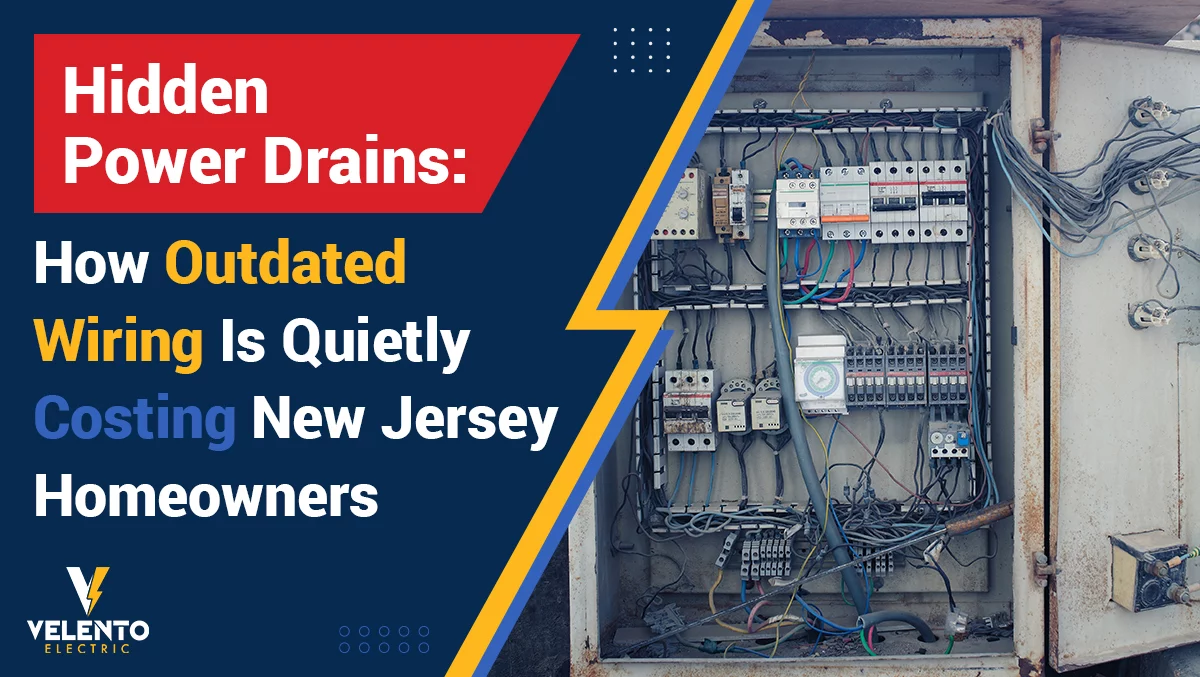⚠️ Introduction: The Silent Threat Inside Your Walls
When homeowners think of home improvement, they often picture fresh paint, new flooring, or energy-efficient appliances. But behind your walls lies a hidden system that, if left untouched, could be draining your finances—and endangering your safety. We’re talking about outdated wiring.
For thousands of New Jersey homeowners, old electrical systems are costing more than they realize—both in dollars and peace of mind. Whether you live in a classic colonial or a 1970s suburban home, ignoring your electrical infrastructure might be one of the most expensive mistakes you’re making.
This article explores how outdated wiring impacts your home’s performance, safety, and efficiency, and what steps you can take to reclaim control before it’s too late.
🔌 Understanding Outdated Wiring: What Counts as “Old”?
Not all wiring is created equal—and not all wiring lasts forever.
The term “outdated wiring” typically refers to:
✅ Knob-and-tube wiring (common in homes built before 1940)
✅ Aluminum wiring (used heavily between 1965–1973)
✅ Ungrounded circuits
✅ Two-prong outlets without proper ground protection
✅ Outdated fuse boxes instead of modern circuit breakers
These systems weren’t designed for today’s high-demand devices like smart TVs, home automation systems, or HVAC units. Over time, insulation deteriorates, connections loosen, and safety diminishes.
📍 In New Jersey—where many homes are 50+ years old—millions of residents are unknowingly relying on hazard-prone electrical systems every day.
💡 Why Outdated Wiring Is a Power Drain
If your monthly electric bills seem higher than they should be, outdated wiring may be the culprit.
Here’s how:
✅ Inefficient Power Flow – Old conductors can’t handle today’s energy needs, leading to voltage drops and inconsistent delivery.
✅ Increased Resistance – Deteriorated wires cause more resistance, which means more electricity is needed to power appliances.
✅ Phantom Loads – Older systems may leak energy even when devices are off, increasing base energy usage.
✅ Overloaded Circuits – Circuits designed for 1940s appliances struggle with today’s usage, reducing efficiency and increasing cost.
📉 Result? You’re paying more for less usable electricity.
🔥 The Hidden Safety Hazards of Old Wiring
Beyond energy efficiency, safety is the primary concern. Outdated wiring dramatically increases the risk of:
✅ Electrical fires – The U.S. Fire Administration attributes thousands of house fires annually to old wiring.
✅ Shocks and electrocution – Especially with two-prong outlets and ungrounded systems.
✅ Breaker trips and appliance failures – Inconsistent power delivery can damage modern electronics.
✅ Insurance issues – Many insurers charge higher premiums or refuse coverage for homes with knob-and-tube or aluminum wiring.
🛑 According to the Electrical Safety Foundation International (ESFI), homes with outdated wiring are up to 3 times more likely to experience a fire.
🏠 Common Signs Your New Jersey Home Has Outdated Wiring
You don’t need to tear open your walls to spot potential issues. Be on the lookout for these red flags:
✅ Flickering or dimming lights
✅ Warm or discolored outlets
✅ Frequent breaker trips or blown fuses
✅ Buzzing sounds behind walls or at outlets
✅ Limited or no GFCI outlets in kitchens and bathrooms
✅ Two-prong outlets throughout the home
✅ Lack of modern circuit breakers
👷♂️ If you notice any of these, schedule an electrical inspection immediately.
📍 Why This Is Especially Urgent for New Jersey Homeowners
New Jersey is one of the oldest-settled regions in the U.S., and with that comes a large inventory of aging homes.
📊 According to U.S. Census data:
- Over 42% of NJ homes were built before 1970
- Many urban and suburban neighborhoods (like Montclair, Hoboken, and parts of Newark) still rely on legacy systems
- Historic homes—while beautiful—often preserve dangerously outdated electrical infrastructure
Add in New Jersey’s frequent storms, seasonal humidity, and growing adoption of electric vehicles and smart homes, and the strain on outdated systems becomes even more dangerous.
⚙️ How Outdated Wiring Affects Modern Living
Modern lifestyles depend on a stable, high-capacity electrical infrastructure. Here’s how outdated wiring interferes:
📺 Smart Home Devices & Appliances
✅ Voice assistants, smart thermostats, security systems, and smart lighting require clean, consistent power
✅ Voltage dips can cause data loss or functional errors
✅ Surge events may permanently damage sensitive electronics
🚗 EV Chargers & Garage Power
✅ Older garages were never designed for EV load demands
✅ Outdated wiring can overheat or short-circuit under heavy charging cycles
❄️ HVAC Systems
✅ Inconsistent wiring may lead to thermostat failure, compressor stress, and energy inefficiency
🔍 The True Cost of Doing Nothing
While rewiring might feel like a big investment, the cost of inaction is far greater.
📉 Hidden financial losses from outdated wiring:
✅ $50–$150/month in inflated energy bills
✅ $300–$1000+ in damaged electronics over time
✅ Higher home insurance premiums (or outright denial)
✅ Loss of home value due to inspection failure or appraisal issues
✅ Fire recovery costs—ranging from $25,000 to total property loss
🎯 A professional rewiring may cost $5,000–$15,000, but it pays for itself in safety, energy savings, and peace of mind.
🔧 What’s Involved in Rewiring a Home?
A modern rewire involves:
✅ Replacing outdated wires with modern copper, grounded wiring
✅ Upgrading from fuses to circuit breakers
✅ Installing AFCI/GFCI outlets in wet or high-risk areas
✅ Replacing light fixtures, switches, and outlets
✅ Ensuring proper capacity for HVAC, EVs, and major appliances
Timeframe: 5–10 days, depending on home size
Permit Required: ✅ Yes
Disruption: Minimal when planned correctly
👷♂️ Pro Tip: Always hire a licensed New Jersey electrician—local code compliance is non-negotiable.
🛡️ How Modern Wiring Pays Off
Investing in upgraded electrical systems yields long-term benefits.
📈 Financial Savings:
✅ Lower monthly utility bills
✅ Reduced electronics replacement costs
✅ Increased home resale value
🧠 Peace of Mind:
✅ Drastically reduced fire risk
✅ Reliable power during storms
✅ Fewer breaker trips and appliance failures
🌿 Environmental Responsibility:
✅ More efficient energy use
✅ Reduced carbon footprint
🔍 Real Homeowner Case Study: Before and After Wiring Upgrade in Edison, NJ
Home: 1956 ranch-style home
Problem: Rising energy bills, flickering lights, burnt outlet
Solution: Full home rewiring + panel upgrade
Results:
✅ Monthly electricity cost dropped from $245 → $168
✅ Insurance premiums lowered by 20%
✅ EV charger safely installed
✅ Peace of mind with child-safe outlets
💬 “We were shocked at how much more stable and efficient the home felt. It was a game changer.”
💬 Frequently Asked Questions About Outdated Wiring
🔌 How long does home wiring last?
✅ Typically, 40–60 years depending on insulation, usage, and material.
💡 Is aluminum wiring always dangerous?
✅ Not always, but it poses serious risks if not professionally maintained or modified.
🏠 Will I need to open all walls during a rewire?
✅ Not necessarily. Licensed electricians use strategic access points to minimize damage.
📉 Will it affect my home’s resale?
✅ Yes—in a good way. Homes with updated wiring sell faster and often for 5–10% more.
🧭 How to Get Started: Your Wiring Safety Checklist
Before making any decisions, assess your home with this quick self-check:
✅ Does your home have a fuse box or two-prong outlets?
✅ Was your home built before 1980 and never rewired?
✅ Do you experience breaker trips when multiple appliances are running?
✅ Have you noticed hot outlets, buzzing, or flickering lights?
✅ Are you planning a renovation or adding EV/hot tub/HVAC?
🎯 If you answered yes to 2 or more, schedule a professional electrical inspection ASAP.
📞 Why New Jersey Homeowners Should Act Now
Don’t wait for disaster to strike. Whether you’re planning a renovation, buying a historic property, or just tired of high electric bills—this is your sign.
A proactive approach to electrical health saves money, increases safety, and adds value to your home.
✅ Call a local, licensed electrician for an in-home audit
✅ Discuss panel capacity, insulation condition, and code compliance
✅ Request a quote for rewiring or strategic upgrades
🧰 Upgrades Beyond Wiring: Complementary Improvements for Energy Efficiency
Once your home wiring is modernized, it opens the door to even more cost-saving opportunities. Many homeowners in New Jersey are combining rewiring projects with other smart upgrades that maximize energy efficiency and home comfort.
🔋 Smart Panel Installation
✅ A smart electrical panel allows real-time energy monitoring.
✅ Track which appliances consume the most electricity.
✅ Set schedules and automation to reduce peak-time energy use.
✅ Identify anomalies early—before they become costly repairs.
🌡️ Whole-House Surge Protection
✅ Modern wiring works best when paired with surge protection.
✅ Prevents voltage spikes from damaging electronics and appliances.
✅ Especially useful during New Jersey’s thunderstorm seasons.
🌬️ HVAC System Optimization
✅ After rewiring, your HVAC units operate more efficiently.
✅ Upgrade to ENERGY STAR® rated thermostats and climate systems.
✅ Results in more balanced heating and cooling across rooms.
These upgrades are not just tech-savvy—they’re budget-savvy, especially when done alongside electrical system modernization.
📑 Permits and Legal Considerations in New Jersey
Many homeowners hesitate to move forward with rewiring due to concerns over permits and inspections. However, in the state of New Jersey, these steps are straightforward and essential for both legality and safety.
📄 Required Permits:
✅ Electrical permit from your municipal construction office
✅ Sometimes combined with renovation or remodeling permits
✅ May require plan submissions for large-scale rewiring
🧾 Inspection Process:
✅ Rough-in inspection during early stages of the project
✅ Final inspection before walls are closed
✅ Certification of compliance issued upon successful pass
🏠 Fun Fact: Homes sold in New Jersey must often pass an electrical inspection as part of the closing process. Up-to-date wiring can fast-track your home sale.
🌍 Sustainable Living Starts with Modern Infrastructure
In today’s environmentally conscious world, outdated wiring isn’t just inefficient—it’s unsustainable. Modern wiring supports a cleaner, greener lifestyle by making it easier to integrate:
✅ Solar panels
✅ Battery backups and energy storage systems
✅ EV charging stations
✅ Home automation and smart grid participation
For New Jersey residents committed to lowering carbon emissions, rewiring is the first step toward a fully energy-responsible home.
🌱 When combined with solar or geothermal energy solutions, modern wiring can reduce a household’s energy footprint by up to 60%.
👪 Protecting Your Family: The Human Side of Rewiring
While numbers and savings are compelling, let’s not forget the most important reason for updating old wiring—the safety of your loved ones.
Aging electrical systems are a known risk for:
✅ Children – Exposed wires, two-prong outlets, and lack of GFCIs increase electrocution risk
✅ Elderly family members – High risk during fires or outages caused by electrical failure
✅ Pets – Curious animals may chew or scratch at faulty cords and outlets
Installing tamper-resistant outlets, smart fire alarms, and up-to-code breakers adds another layer of everyday protection for your family.
🧠 Psychological Peace: What Electrical Confidence Feels Like
Many homeowners unknowingly live with low-level anxiety about their electrical systems. Worrying about breaker trips during family dinners, overloaded outlets in home offices, or “mystery” buzzes behind walls creates mental noise.
✅ Rewiring gives homeowners confidence and control.
✅ No more second-guessing every flicker or failed appliance.
✅ You gain not just safety—but serenity.
When your home’s electrical system is up to date, you stop reacting to problems—and start living proactively.
🧭 Prepping Your Home for Tomorrow’s Technology
In the coming decade, homes won’t just consume power—they’ll interact with it. A modern wiring system is your passport to this evolving landscape.
📡 What’s Coming Soon?
✅ Time-of-use energy billing—charge less during off-peak hours
✅ Grid-to-home communication—your panel will sync with your provider
✅ Universal EV infrastructure—every garage will need charging stations
✅ AI-powered energy automation—your home will adjust its own usage
💬 You don’t want to retrofit modern tech into a 1970s system.
Invest now to future-proof your property.
🏢 Why Real Estate Professionals Recommend Electrical Updates
If you’re preparing to sell your home, real estate agents will almost always recommend addressing outdated wiring—especially in New Jersey’s competitive market.
💼 Here’s why:
✅ Homes with modern wiring are listed as “move-in ready”
✅ They pass inspections faster—reducing contingencies
✅ Buyers feel safer investing in an upgraded property
✅ Many lenders and insurers prefer or require updated electrical systems
🏠 Homebuyers today expect smart systems, safety, and efficiency—don’t let your wiring hold back your property’s value.
💼 Choosing the Right Electrician in New Jersey
The success of a rewiring project depends on the expertise and reputation of your electrical contractor.
Here’s what to look for:
✅ Licensed and insured in New Jersey
✅ Experience with older home rewiring
✅ Transparent pricing and written estimates
✅ Solid reviews from local homeowners
✅ Knowledge of NJ building codes and permits
🔧 Bonus Tip: Look for electricians who offer free safety audits or energy-efficiency consultations as part of their service.
🧾 Tax Incentives and Financing Options for Upgrades
In 2025, homeowners in New Jersey may qualify for local or federal programs designed to make home energy upgrades more affordable.
📌 Potential Resources:
✅ New Jersey Clean Energy Program (NJCEP) – Offers incentives for energy-efficient upgrades
✅ Federal Energy Efficiency Tax Credits – Available for panels, smart upgrades, and safety rewiring
✅ Home equity financing – Many banks offer low-interest loans for code-compliant improvements
✅ Utility-sponsored rebates – Check with PSE&G, JCP&L, and Atlantic City Electric for options
A quick consultation with an energy advisor or licensed electrician can help you determine your eligibility.
🛠️ Rewiring in Phases: A Flexible Approach for Budget-Conscious Homeowners
Concerned about the cost of a full rewiring job? You’re not alone. Many New Jersey families choose to approach the project in phases.
🎯 Smart Phased Approach:
✅ Start with high-priority areas—kitchens, bathrooms, and bedrooms
✅ Upgrade your main panel and breaker system
✅ Add surge protection and grounding
✅ Plan for whole-house rewire over 12–24 months
This approach allows for budget flexibility without compromising on safety.
⚖️ Homeowner Liability: Legal Risks of Ignoring Electrical Hazards
Beyond personal safety and financial efficiency, outdated wiring can open homeowners up to legal liabilities—especially if the issue leads to property damage or injury.
🔍 Common Legal Risks Include:
✅ Negligence claims – If faulty wiring causes a fire or injury and the homeowner ignored warning signs, insurance may not cover the damages.
✅ Rental liabilities – New Jersey landlords are legally obligated to provide safe, habitable housing. Failing to upgrade hazardous wiring could result in lawsuits or code violations.
✅ Disclosure violations – When selling a home, failing to disclose known electrical deficiencies could lead to post-sale disputes or legal action from buyers.
⚠️ Avoid these pitfalls by proactively documenting all electrical inspections, upgrades, and repairs. Transparency protects you as much as the rewiring itself.
🧑🔧 Spotlight: The Licensed Electrician’s Role in Home Safety
While DIY fixes may work for small tasks like replacing an outlet cover, electrical rewiring is not a DIY job. New Jersey law requires that major electrical work be performed by licensed contractors, and for good reason.
Here’s what certified professionals bring to the table:
✅ Code Compliance: Electricians stay updated on evolving NJ building codes and NEC (National Electrical Code) requirements.
✅ Load Calculations: They can accurately determine your home’s energy load and balance circuits properly.
✅ Safety Assurance: They test all connections, grounds, breakers, and insulation for durability and hazard prevention.
✅ Permit Handling: Licensed electricians pull the correct permits and coordinate with local building departments for inspections.
🔐 Hiring the right professional not only ensures quality work—it protects your home from insurance disputes and municipal fines.
🧭 Modern Electrical Design: Planning for Lifestyle Evolution
Today’s homes are more than living spaces—they’re hybrid offices, entertainment centers, classrooms, and wellness zones. Your wiring should match this multifunctional demand.
📐 Design Considerations When Rewiring:
✅ Dedicated circuits for home offices, gaming rooms, or craft spaces
✅ Wired Ethernet outlets for seamless internet and smart home setups
✅ Ceiling wiring for fans, media projectors, or ambient lighting
✅ USB outlets and smart switches for modern convenience
✅ Future-proofing – Run extra conduits or empty junctions for future upgrades
With strategic planning, your rewiring project can go beyond necessity—it becomes a foundation for convenience, technology integration, and lifestyle flexibility.
🚀 Conclusion: Stop Power Leaks Before They Start
Outdated wiring isn’t just an “old home problem.” It’s a silent power drain hiding in plain sight—costing New Jersey homeowners thousands each year.
You’ve upgraded your appliances. You’ve modernized your décor.
Now it’s time to upgrade the most important system of all—your electrical wiring.
✅ Reclaim energy efficiency
✅ Protect your family and property
✅ Boost your home’s future market value
✅ Sleep better knowing your walls are safe
📣 Call to Action: Don’t Let Outdated Wiring Drain Your Wallet or Risk Your Safety
🏡 Live in New Jersey and unsure about your home’s electrical health?
📞 Book a free consultation with a licensed electrician today.
📍 Local experts can inspect, advise, and quote on any necessary upgrades.
Stop paying for wasted energy. Start powering your home the smart, safe way.












